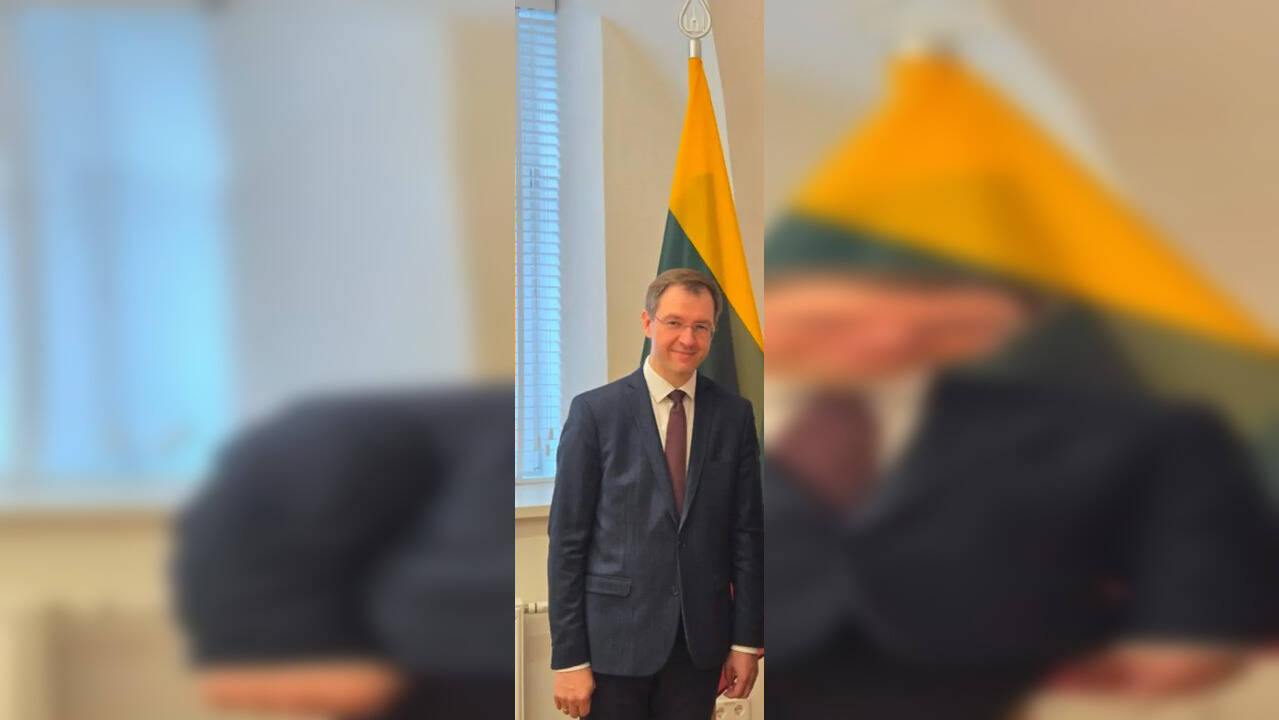
Karolis Aleksa, Lithuanian vice-minister of national defence.
Whether it is cybersecurity, UAVs, or the possible purchase of Indian-made NATO-compatible and combat-efficient weaponry, Lithuania is keen to discuss a variety of defence-related issues with India, Karolis Aleksa, Lithuanian vice-minister of national defence, told TIMES NOW.
“I believe we have to start talking in a more structured way… talk about what can be done,” Aleksa said.
In the wake of the Russia-Ukraine war that began three years ago, Lithuania, a part of NATO, led by the United States and the European Union, says it is a frontline state and increased defence spending as a percentage of GDP to 5 per cent. Like Estonia (NATO’s cybersecurity centre is in Tallinn), Lithuania is also a cyberpower, something Lieutenant General V.G. Khandare (Retd), till recently, advisor to defence minister Rajnath Singh, acknowledges, adding that “they have learnt the hard way.”
Aleksa said, “Cyber threats unite many nations. We see China and Russia as very active, and also Iran.” He spoke of “sharing experiences, assessing threats and countermeasures to ensure high levels of cyber resiliency. “We can talk and see what we can do together,” he added.
India and Estonia, one of the three Baltic nations along with Latvia and Lithuania, already collaborate on cyber issues, Lieutenant General Khandare (Retd.) said.
UAVs are another area of possible cooperation. “Just the other day, we had a huge discussion on UAV threats. He spoke about countering UAVs, and a “big discussion” was necessary. “Every nation is looking for solutions and to respond to such threats. There is a shared experience. It (a discussion) is a possibility. The first step is to just sit down and talk about security and see where that takes us.”
Regarding “NATO-compatible and combat-efficient” Indian-made weapons, he said, “We are getting invitations to different defence expositions, including India. It is in our interest to understand the landscape… It may be too early to say ‘this kind of equipment,’ but in principle it is important to see what kind of solutions are available.” Aleksa also spoke of the importance of the “chain of logistics.”
He added, “We have to have everything ready if the time comes.” Of course, like all countries, Lithuania is building up its national defence industry. “If you are increasing defence spending, you would like to increase your national defence industry, but we are looking at different solutions.”
With the Ukraine-Russia war raging, there is concern in Lithuania, despite being a NATO member. It sees itself as a frontline state. Speaking about Russia, he said, “They wanted an agreement with NATO that it should go back to the situation of 1997, which means that the Baltic States, Poland, the Czech Republic and Slovakia will not be safeguarded by NATO security guarantees and collective defence. They (Russia) will try to regulate and influence in negative ways the lives of those nations that chose NATO and EU membership.”
Aleksa said that attacking Ukraine “is a huge first step… this is a great threat for us because we see we could be the next ones.” He said Russia had a plan to “influence and impact the unanimity and solidarity among NATO members.” Which is why NATO has a plan, a defence plan and is “working on deterrence.”
Lithuania (a country of 3 million people that was part of the Soviet Union from 1939 to 1991) has been increasing its defence spending and wants to have an infantry division, “a fighting division of three brigades with divisional enablers and interoperable with the NATO forces.”
Germany will also permanently deploy a brigade in Lithuania, Aleksa said, adding that the NATO presence in the country is a top priority. “We have a thousand American troops here. We are thankful for our allies,” he said.
Other security measures include expanding the 17,000-strong Rifleman Union by 2,000 members a year and training civilians to operate drones. The goal is to have more people ready to help during a crisis.
While Russia is deeply engaged in Ukraine, Aleksa noted that the likelihood of conventional military aggression is limited. However, he warned that “hybrid activities” against the Baltic states and other NATO countries are already taking place. These include arson, sabotage, the destruction of monuments, and threats to critical undersea infrastructure in the Baltics.
Aleksa also pointed to Russia’s attempts to distort historical narratives, saying, “They claimed Ukraine was not a nation, and now they’re trying to distort Lithuanian and Baltic history too—saying our independence is not legal, and so on.”